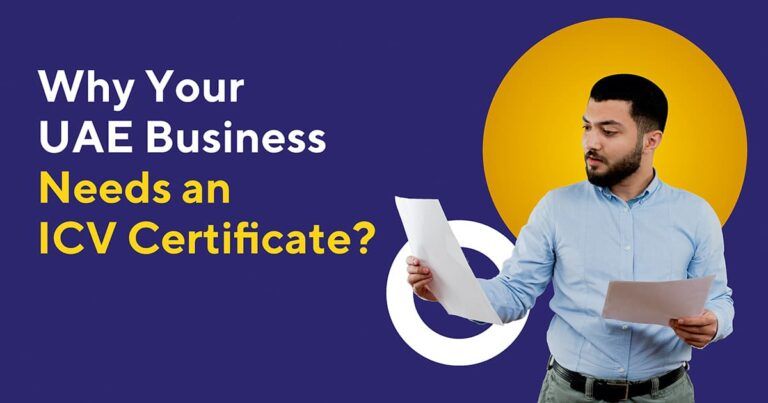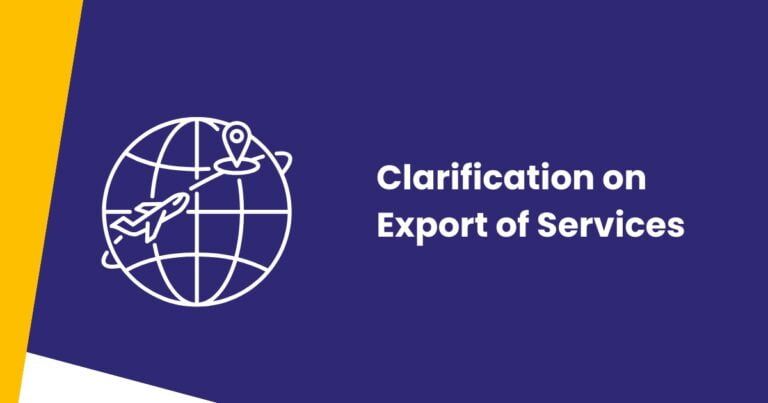The ICV (In-Country Value) certificate has become a crucial credential for companies based in the UAE across sectors like oil & gas, construction, healthcare, ICT, and more. But what exactly is this certificate and why is it important for your business?
What is an ICV Certificate?
An ICV certificate is an official certification issued by government-authorized entities to companies operating in the UAE to recognize their contribution to the country’s economic development and growth. It evaluates parameters such as:
- Percentage of Emirati employees
- Percentage of goods and services procured locally
- Investments made into setting up infrastructure, facilities, assets
- Training and development initiatives for UAE citizens
Based on a company’s performance across these criteria, they are assigned an ICV score. A higher score signifies greater commitment and alignment to the UAE government’s Emiratization and domestic industry growth agenda.
Why Obtain ICV Certification?
Government Contracts Access
ICV certification unlocks preferential status for companies to bid for government tenders and contracts. Many tenders by ADNOC, DEWA, ADDC and other government bodies only allow ICV certified companies to submit bids.
For example, Abu Dhabi National Oil Company (ADNOC) offers exclusive bidding rights for its $17 billion worth of procurement contracts every year only to ICV certified companies.
Operational Advantage
Authorities offer a faster renewal of licences, permits, regulatory approvals and other clearances to ICV certified companies compared to others. This enables smoother functioning.
Competitive Reputation
ICV certificate greatly enhances a company’s reputation as a committed contributor to the UAE’s economy. This positions it favourably amongst customers, partners, investors and talent.
Step 1: Understanding ICV Requirements
ICV requirements in terms of parameters, thresholds, documents needed etc. vary as per the issuing authority and sector. Some key guidelines per sector include:
In the oil and gas sector, minimum expectations may include having at least 40% Emirati employees, entering mandatory partnerships with two UAE-based SMEs, and making infrastructure investments exceeding AED 3 billion within the country.
Healthcare providers may need to demonstrate 10% Emirati staff, source 20% of procurement from local suppliers, and submit comprehensive Emiratization plans.
Construction companies need to attain an ICV score of at least 15%, provide an ICV scorecard with workforce and purchasing details, and undertake three supportive initiatives that develop the UAE construction industry.
Step 2: Improving Your ICV Score
Strategic investments in local talent development, procurement, and infrastructure growth can help to amplify an organisation’s ICV score. Setting hiring quotas for UAE citizens across levels, launching specialised recruitment and training programs, and investing in local skill enhancement academies demonstrate a commitment to Emirati employment.
Sourcing raw materials, spare parts, tools and other operational purchases from local manufacturers instead of importing them increases local procurement.
Expanding or adding new in-country production facilities, earmarking R&D budgets for UAE-specific innovations, and reinvesting capital into existing infrastructure growth all help drive greater economic impact.
Step 3: Getting ICV Certification
The process of obtaining an In-Country Value (ICV) certificate involves clear milestones – starting from registration to final certification.
The first step revolves around identifying and registering with the relevant ICV assessing body based on your industry sector – whether that is Etihad Esco, the Statistics Centre-Abu Dhabi, Ministry of Economy’s Industrial Development & Export Council (MOEIEC), the Abu Dhabi Department of Economic Development, or another approved authority. Making sure you have registered with the appropriate body is key.
Next, you enter the assessment and audit phase. This involves submitting all required documents for evaluation – which may include detailed workforce data, infrastructure investment figures, localization plans, and supply chain information. Your submission then undergoes a comprehensive desk review, followed by rigorous on-site audits at company premises and facilities to verify ICV criteria.
Finally, after demonstration of compliance, your organisation will receive formal ICV certification if your assessed score meets or exceeds the minimum thresholds mandated. Make sure to renew the certification in a timely manner when required to retain your certified status.
Staying abreast of evolving requirements, diligently going through reviews, and promptly responding to auditor inputs can help streamline your ICV certification journey. The reward is gaining credentials that unlock valuable growth opportunities in the UAE economy.
Step 4: Leveraging your ICV Certificate
Once officially ICV certified, organisations should actively showcase the certification to reap additional benefits. Certification establishes credibility with government agencies, customers, investors and partners, enabling access to exclusive incentives and contracts.
For example, ICV certified companies enjoy advantages in bidding for government and semi-government projects, faster regulatory approvals, and licence renewal processing.
Partnership opportunities also open up with other ICV certified businesses in the UAE. Overall, prioritising ICV compliance unlocks sustainable growth opportunities by building competitive advantage, efficiency, transparency and reputation in the country.
Conclusion
As the UAE continues its economic diversification into non-oil sectors, building In-Country Value has become a top policy priority. ICV certification creates a win-win situation – enabling businesses to contribute to national objectives around job creation, supply chain development and infrastructure investment, while also gaining preferential access to lucrative government contracts and incentives.
Making the upfront effort to understand criteria, boost localization numbers, source more domestic supplies, and report transparently as per guidelines is key to securing this coveted certification. Renewing ICV credentials annually also ensures sustained compliance.
FAQs
Most ICV certifications are valid for 1 year from the date of issue. Companies need to renew their ICV certificate annually by re-applying and undergoing the assessment and audit process again. Failure to renew on time leads to certificate expiry and non-compliance status.
Key documents needed are:
Emiratization statistics and plans
Data of purchases/contracts awarded to local suppliers
Proof of infrastructure investments in UAE
Invoices substantiating local procurement
Documents validating training programs for Emirati employees
Detailed scorecard and supporting evidence for claims
Non-compliance with stipulated ICV requirements can lead to penalties like:
Blacklisting and restrictions on bidding for new tenders
Failure in renewal of existing contracts, licenses etc.
Higher compliance standards imposed for future certifications
Negative perceptions due to poor ICV performance records
Therefore, it is prudent for entities to proactively comply





